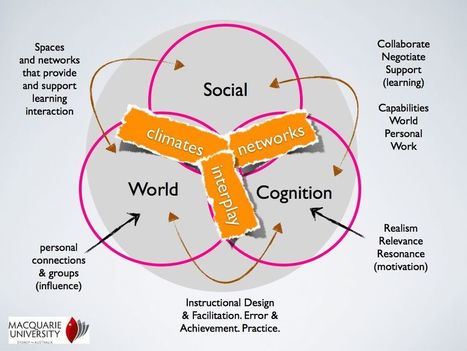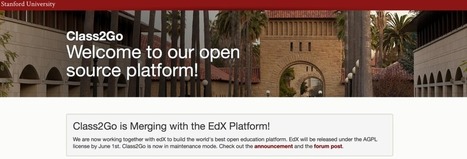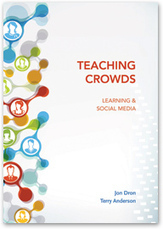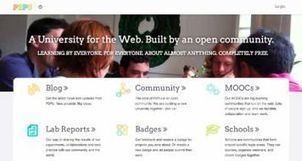Get Started for FREE
Sign up with Facebook Sign up with X
I don't have a Facebook or a X account
 Your new post is loading... Your new post is loading...
 Your new post is loading... Your new post is loading...

timokos's curator insight,
July 8, 2013 5:45 AM
on the different pedagogies of c-MOOCs and those of Udacity, Coursera & edX.
"Let me end with my own pedagogical recommendations for MOOC’s: Be as open as possible. Go beyond open enrollments and use open pedagogies that leverage the entire web not just the specific content in the MOOC platform. As part of your open pedagogy strategy use OER and openly license your resources using Creative Commons licenses in a way that allows reuse, revision, remix, and redistribution. Make your MOOC platform open source software. Publish the learning analytics data you collect as open data using a CC0 license.Use tried and proven modern online learning pedagogies not campus classroom-based didactic learning pedagogies which we know are ill-suited to online learning.Use peer-to-peer pedagogies over self study. We know this improves learning outcomes. The cost of enabling a network of peers is the same as that of networking content – essentially zero.Use social learning including blogs, chat, discussion forums, wikis, and group assignments.Leverage massive participation – have all students contribute something that adds to or improves the course overall."

Carlos Lizarraga Celaya's curator insight,
May 8, 2013 11:39 AM
In 2011, the respective roles of higher education institutions and students worldwide were brought into question by the rise of the massive open online course (MOOC). MOOCs are defined by signature characteristics that include: lectures formatted as short videos combined with formative quizzes; automated assessment and/or peer and self–assessment and an online forum for peer support and discussion. Although not specifically designed to optimise learning, claims have been made that MOOCs are based on sound pedagogical foundations that are at the very least comparable with courses offered by universities in face–to–face mode. To validate this, we examined the literature for empirical evidence substantiating such claims. Although empirical evidence directly related to MOOCs was difficult to find, the evidence suggests that there is no reason to believe that MOOCs are any less effective a learning experience than their face–to–face counterparts. Indeed, in some aspects, they may actually improve learning outcomes. |

José Cuerva's curator insight,
September 10, 2014 3:37 AM
In the field of online sharing and learning, the “Massive Open Online Course” (“MOOC”) has received a lot of attention. Many are enthusiastic about what elite universities such as the Massachusetts Institute of Technology and the University of Harvard are piloting. The two schools have offered joint online courses that have attracted well over 100,000 students.

Maria Toro-Troconis's curator insight,
March 6, 2013 8:29 AM
Excellent article about the differences in the Pedagogic models: xMOOCs and cMOOCs, followed by two Coursera courses. 
Anne Whaits's curator insight,
March 7, 2013 12:59 PM
A really good post which argues that it is the learning orientation that determines the pedagogical method selected for instruction. The comparision of pedagogical methods employed in two courses on Coursera reveal the clashes between the views on how people learn. |




























